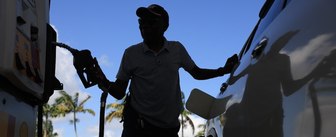The Biden Administration is hoping Congress will pass the $1.9 trillion relief package it has proposed, despite arguments that it is too expensive.
The details of the package still must be negotiated, but the latest Economist/YouGov poll shows that the American public who know about the bill (86%) support the proposal by two to one (64% to 28%).
Majorities also support its specific proposals. The lowest support level is for the proposal to raise the minimum wage to $15 an hour, but even this is backed by 57%.
There are, however, items that have relatively little GOP support, including the package as a whole. One-third (32%) of Republicans support the COVID-19 aid package, but 57% oppose it. Three-quarters (78%) of Republicans oppose increasing the minimum wage, and Independents divide evenly on the question. The President has already said he doubts this provision will make it into the final relief legislation.
Relief for student loan debt is also opposed by Republicans, and by more than two to one (68% to 30%). But that proposal is extremely popular with college graduates under the age of 45, the group that is most likely to have student loan debt. Three-quarters (76%) in this group support the proposal.
Republicans are also wary of giving money to state and local governments, even for job creation. Just 40% support that, while 51% oppose it. On the other measures, however, a majority of Republicans are in favor.
See the toplines and crosstabs from this week’s Economist/YouGov poll
Methodology: The Economist survey was conducted by YouGov using a nationally representative sample of 1,500 US Adult Citizens interviewed online between February 6 - 9, 2021. This sample was weighted according to gender, age, race, and education based on the American Community Survey, conducted by the US Bureau of the Census, as well as 2016 Presidential vote, registration status, geographic region, and news interest. Respondents were selected from YouGov’s opt-in panel to be representative of all US citizens. The margin of error is approximately 3.0% for the overall sample.
Image: Getty









